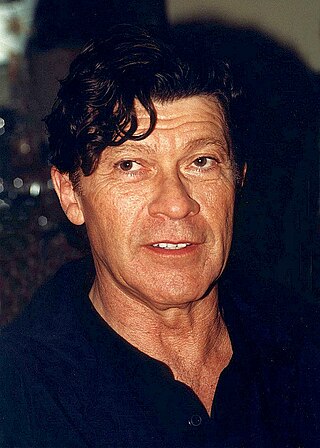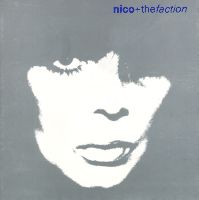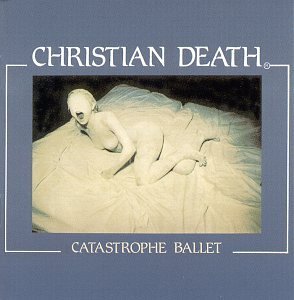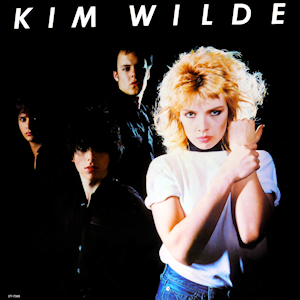
Blondie is an American rock band formed in 1974 in New York City by singer Debbie Harry and guitarist Chris Stein. The band was a pioneer in the American new wave scene of the mid-1970s in New York City.

Jaime Royal "Robbie" Robertson was a Canadian musician. He was lead guitarist for Bob Dylan in the mid-late 1960s and early-mid 1970s, guitarist and songwriter with The Band from their inception until 1978, and a solo artist.

Camera Obscura is the sixth and final studio album by German singer Nico, featuring the backing band the Faction. It was recorded in March–April 1985 and released later that year by Beggars Banquet Records. It was produced by John Cale, marking their first studio collaboration since The End... in 1974. It was Nico's final studio album before her death.

Now Then... is the fourth album by the Northern Irish band Stiff Little Fingers, released in 1982. It was produced by Nick Tauber. Some songs employed a horn section. The band broke up after the release of the album.

"Heart of Glass" is a song by the American new wave band Blondie, written by singer Debbie Harry and guitarist Chris Stein. It was featured on the band's third studio album, Parallel Lines (1978), and was released as the album's third single in January 1979 and reached number one on the charts in several countries, including the United States and the United Kingdom.
Holly Beth Vincent is an American singer, songwriter, multi-instrumentalist and record producer.

Polyrock was an American post-punk/new wave band formed in New York City in 1978 and active until the mid-1980s. Strongly influenced by minimalism, the group was produced by the composer Philip Glass and Kurt Munkacsi. The band, led by singer/guitarist Billy Robertson, had a keyboard-heavy, pattern-based sound strongly reminiscent of Glass's work; in fact, Glass performed on their first two albums.

Catastrophe Ballet is the second studio album by American rock band Christian Death. It was released in 1984, through record label Contempo.
Brilliant were a British pop/rock group active in the 1980s. Although not commercially successful and mauled by the critics, they remain notable because of the personnel involved – Martin Glover a.k.a. Youth of Killing Joke and subsequently a top producer/remixer; Jimmy Cauty, later to find fame and fortune as one half of The KLF; and Ben Watkins a.k.a. Juno Reactor. Equally notable was their management, their record company A&R manager, and songwriting and production team.
Red Rockers were an American musical band from New Orleans, Louisiana, United States, active from 1979 to 1985. Originally formed as a hard-charging punk rock band, they changed their style to a smoother, more melodic sound and released two albums in the new wave vein of their record label, 415. They are best known for their 1983 hit single "China".

Song of the Bailing Man is the fifth Pere Ubu album, released in 1982. It was the final Pere Ubu album until 1988's The Tenement Year.

Dark Continent is the debut studio album by the American rock band Wall of Voodoo, released in 1981 by I.R.S. Records. Early live versions of four songs are featured on the compilation The Index Masters.

Polyrock is Polyrock's eponymous debut album. It was first released in 1980 on LP on RCA Records. A CD version was not available until 2007, when it was reissued on Wounded Bird Records.

Kim Wilde is the debut studio album by English singer Kim Wilde, released on 29 June 1981 by Rak Records. Fronted by the top 10 singles "Kids in America" and "Chequered Love" and greeted with a generally positive response from critics, the album launched Wilde into stardom and remains one of her most popular recordings.

Crawdaddy is an album by the British band the Darling Buds. It was released on Epic Records in 1990 and contains the singles "Tiny Machine" and "Crystal Clear". The band supported the album by touring with Wire Train.

The Blasters is the second album by American rock band the Blasters. Originally released in the United States by the independent label Slash Records, its strong sales performance required a deal for wider distribution with Warner Bros. Records. The album was well received, being ranked among the top 10 albums of 1982 by Time magazine and peaking at number 36 on Billboard's Pop Albums chart.

Betrayal, Fear, Anger, Hatred is the first EP by Canadian punk rock band Nomeansno. Released in 1981, it and the "Look, Here Come the Wormies / SS Social Service" 7-inch split single from the previous year are the two official Nomeansno releases from their origins recording in their parents' basement before becoming a live band. Originally self-released in a limited vinyl run, the EP since has been re-released by the band's Wrong Records imprint on 7-inch and included on reissues of the band's 1982 debut album Mama.

The Practice of Joy Before Death is an album by the American alternative rock band Pond, released in 1995. Its first single was "Glass Sparkles in Their Hair".

Destination Universe is the second studio album by the American band Material Issue, released on Mercury Records in 1992. "What Girls Want" made the top ten on Billboard's Modern Rock Tracks chart. The band promoted the album with a "Pop Against Recession Tour".

X-teens was an American new wave rock band formed in Durham, North Carolina in 1979 and often identified as part of the North Carolina punk/new wave scene of the 1980s. After disbanding in 1985, the members went on to form other bands, such as 4 Who Dared, Land of Giants and Money vs. People.
















